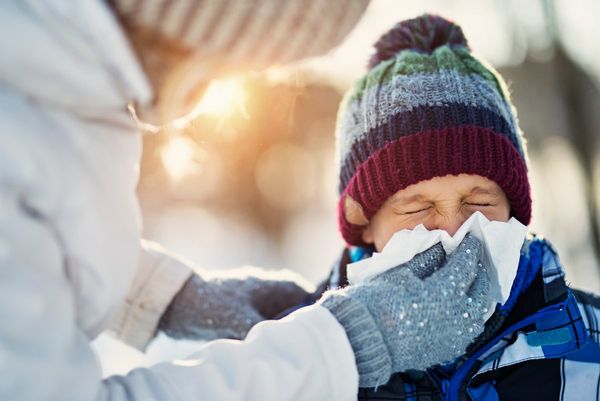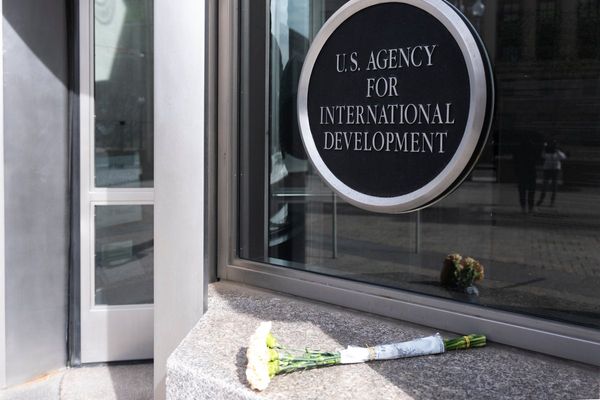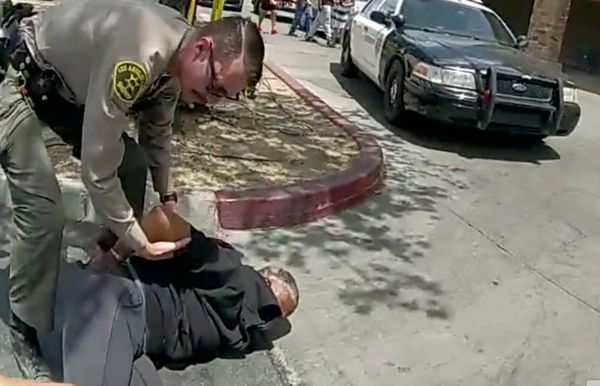Aboriginal elders and mental health experts are concerned about some of Australia's most vulnerable children after the sudden departure of key support workers from South Australia's remote Anangu Pitjantjatjara Yankunytjatjara (APY) Lands.
The ABC can reveal that the two permanent mental health staff who lived and worked on the APY Lands for a decade are no longer there, and that a fly-in-fly-out (FIFO) model has been implemented, despite objections from senior staff in the Department for Child Protection and traditional owners.
Nearly 1,000 reports of child abuse have been made in the region in the past two years.
Pukatja community elder Makinti Minutjukar said the two Child and Adolescent Mental Health (CAMHS) workers provided invaluable support to local families.
"They have been a really strong support for everyone, they've been doing good work for many, many years," she said.
"People come to their house every single day — they need support and help. Sometimes they come with no food and [they were] there with a little bit of food like fruit, cordial just to feed the little kids.
Health Minister Stephen Wade declined to answer several questions about why the two permanent CAMHS workers were no longer working on the APY Lands, describing their exit as "unexpected" while confirming the program was under review.
Psychiatrist 'deeply disturbed' by changes
Child psychiatrist Jon Jureidini spent years working with the CAMHS service on the APY Lands, including an intensive period working in the Amata community.
Dr Jureidini said he was "deeply disturbed" by the program changes, describing them as "a terribly poor error of judgement" that had set the welfare and safety of children on the APY Lands back "at least a decade".
"If you have any kind of idea of social justice, and the social determinants of health, then you recognise straightaway that [a FIFO model] is a bankrupt system that's being implemented," he said.
Dr Jureidini said adopting a FIFO model was "a waste of time".
"If you just have FIFO workers who come in, do what they can, go back to the city with their salaries, spend their money in the city — they make no other contribution to the community," he said.
"If you have our workers living on the Lands, plus local people being employed, then over and above whatever mental health benefits you are creating, you're also enhancing the community, which in turn feeds back into the quality of mental health."
Ms Minutjukar expressed concern about CAMHS becoming a FIFO service because staff would not spend enough time in the community.
"For CAMHS to change the program radically… for them to come in and out, flying in and out, there will be more and more problems," Ms Minutjukar said.
"I'm just worrying about the kids, the children and their family."
Ms Minutjukar said telehealth appointments would not be beneficial.
"It's not going to work — the language is a barrier, it's hard, people have to come and work here, face-to-face, sit with our community and do the job every day, going to each community," she said.
Dr Jureidini said the Aboriginal workers who worked alongside the two permanent CAMHS have also had their contracts stopped.
He said the combination of in-community staff working with Anangu workers was crucial to the program's success.
"It's about language, language interpretation, cultural interpretation, but also access to families, judgement about who the right person is to interact with a family," he said.
"The mutual learning between the European-trained workers and the Malpas [traditional owners], the benefits are enormous and that's not to mention the benefit to the community by creating meaningful employment to Anangu."
Documents reveal opposition to FIFO model
Shadow Aboriginal affairs spokesman Kyam Maher said the state government needed to explain the situation and reinstate funding for the program and the on-country workforce.
"We've had assurances from the Premier, from the Health Minister Stephen Wade, the chief executive of the health department, that the services will continue," he said.
Documents obtained under Freedom of Information by the state opposition reveal the Department for Child Protection's lead psychiatric director Prue McEvoy wrote to the Department of the Premier and Cabinet in July, stating that CAMHS executives had requested they consider a FIFO model for the APY Lands.
Amid questions over the program's funding earlier this year, Dr McEvoy said in an email that while SA Health had found additional funding for CAMHS this year, it would "only allow for a reduced service but we are looking at ways that [one staff member] can remain living on the lands".
The ABC has obtained a letter signed by SA Health chief executive Chris McGowan that was sent to the Public Service Association, which had sought assurances over the program's future.
"The staff involved in the program are currently not on the lands or providing the service," Mr McGowan wrote on October 8.
"The interim model will provide a combination of visiting services as well as enhanced telehealth access."
The letter does not detail why the employees are not in the region.
Health Minister refers questions to health network
Health Minister Stephen Wade declined to answer several questions about why there was no longer permanent CAMHS workers on the APY Lands.
"I don't have all the details and I think that's best addressed by the Women's and Children's Local Health Network," Mr Wade said.
He confirmed that South Australia's Chief Psychiatrist Dr John Brayley was currently reviewing the interim FIFO services being provided to children in the region — that report was expected to be finalised within the month.
"I've asked the chief psychiatrist to undertake not just an independent review of the interim services, but also to make sure the process for the integrated model of carefully engage the people on the Lands," he said.
He said there had been no decision on the balance of FIFO and lands-based workers moving forward in the integrated model of care.
He said funding provided by the state government this year would be the same next year.
'Sustainable model of care' being created
The Women's and Children's Local Health Network (WCLHN) — which oversees the APY Lands CAMHS program — declined to comment on why the workers were not there.
"A review of the CAMHS service to the APY Lands commenced in August 2021 which includes consultation with the local community, with the intent of providing a more sustainable model of care," a spokesperson said.
They said recruitment and training for staff was currently underway.
Mental health in your inbox
Get a selection of the best mental health content from across the ABC by subscribing to our monthly newsletter







